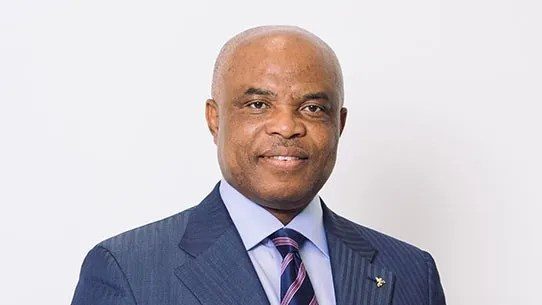FAIZAT BADMUS-BUSARI argues the urgent need to end sexual violence in Sudan
On June 19 annually, the world marks the International Day for the Elimination of Sexual Violence in Conflict. It is a day dedicated to honoring survivors, demanding accountability, and renewing the commitment to justice. But for too many women and girls in Sudan, this day will pass in silence, because their stories remain unheard, their pain unseen, and their suffering weaponized.
Sudan is experiencing one of the gravest crises of our time. Since April 2023, brutal fighting between the Sudanese Armed Forces (SAF) and the paramilitary known as the Rapid Support Forces (RSF) has devastated cities, displaced millions, and left women and girls exposed to widespread and systematic sexual violence. Conflict-related sexual violence (CRSV) in Sudan has been deliberately used by the warring parties as a weapon of war to terrorize, dehumanize, displace, and destroy.
According to the Strategic Initiative for Women in the Horn of Africa (SIHA) Network, which has been documenting these atrocities across Sudan since the war began in April 2023, the patterns are undeniable. A vast majority of the 386 cases verified involve gang rape, some with as many as 12 perpetrators at a time violating a single woman or child. In many instances, women are abducted, held in inhumane conditions, and subjected to prolonged sexual torture. Children account for almost 25% of these documented cases, exposing a horrifying level of brutality.
In our documentation work, we have spoken to women who survived unimaginable brutality. One woman, abducted in El Geneina, West Darfur, was passed from soldier to soldier, and she described herself as being treated “like a gift.” When she was finally released, she walked back into her displacement camp, bloodied, in pain, and in silent torment. In another case, a mother sobbed as she recounted how both she and her teenage daughter were taken away. She was eventually freed after days of assault, but her daughter never returned. “Every morning, I wake up and wait,” she told us. “But the sun keeps rising, and she’s not here.
These are not isolated crimes. They are part of a deliberate strategy, a campaign of gendered terror designed to humiliate communities, punish dissent, and assert dominance. And yet, there has been no accountability. Armed actors continue to operate with impunity. While Sudanese women cry out, the global community remains largely silent, treating this war and the women it targets as though African lives are less important and unworthy of the world’s full attention. The international system continues to respond selectively, where some conflicts are considered emergencies, and others, such as Sudan, are often forgotten.
For Nigeria, these accounts should strike a chord. We have seen how Boko Haram used abduction and sexual slavery as tools of terror. We know the scars left behind by insurgencies, from the Northeast to the Middle Belt. But we also know the power of collective outrage, the global call to #BringBackOurGirls showed that global solidarity is possible, yet Sudanese women continue to be met with silence. Sudan needs that same solidarity now. #KeepEyesOnSudan.
Despite multiple United Nations (UN) briefings and African Union (AU) resolutions, there has been little concrete progress in delivering justice to survivors or in ending the war that continues to place them at risk. While some courts remain operational, most survivors have no safe or trusted pathway to report. Fear of retaliation, lack of protection, and deep-rooted social stigma silence many. With a lack of access to or the availability of safe shelters and severely damaged medical infrastructure, survivors are left to navigate trauma in isolation, often without the hope of redress.
We must ask ourselves: What will it take for Sudanese women to be seen? Nigeria as a leading voice in Africa and a member of the African Union Peace and Security Council can no longer afford to be silent. We must support Sudanese organizations to: Call for a hybrid tribunal on Sudan that includes CRSV as a core pillar, ensuring an end to the cycles of impunity and that perpetrators of crimes are finally held accountable; Fund survivor protection and recovery programs across Sudanese refugee camps in Chad, South Sudan, and Egypt; Support Sudanese women’s organizations already doing frontline response work with little to no resources; and Push the UN, AU, and the Economic Community of West African States (ECOWAS) to include CRSV in all peace and mediation processes, not as a side note, but as a central issue of justice.
The crisis in Sudan demands a continental reckoning with how war continues to target women’s bodies and with how the absence of justice has allowed war to repeat itself. This is not the first time sexual violence has been used as a weapon in Sudan, and it will not be the last, unless impunity ends. Justice must no longer be an afterthought. It must be central to our progress.
On this International Day for the Elimination of Sexual Violence in Conflict, Nigeria must move beyond words towards action. I call on Nigerians to join me in naming the violence, the perpetrators, and standing with the survivors — not just in words, but through action, funding, and political will.
Because until we do, the war on women’s bodies will continue. History will remember those who stood by and watched, versus those who chose to act.
Dr. Badmus-Busari is a Nigerian Lawyer and the Regional Programme Manager of SIHA Network, a pan-African feminist organization working across the Horn of Africa



